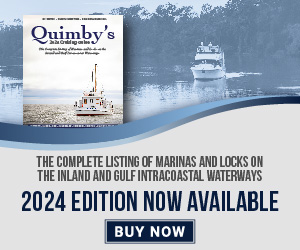This week brought the encouraging news that a committee of lawmakers in the California legislature voted 14 to zero for AB 1122, a bill that would require safety testing before the California Air Resources Board’s rule could take effect requiring marine vessels to install devices called diesel particulate filters onto their engines.
Despite evidence from the marine industry that forcing the installation of the untested—and unavailable—devices could cause safety issues even if they were available, and that an extensive testing and evaluation period was needed, CARB remained deaf to the evidence. Its rule is set to take effect this December if not repealed or altered, despite DPFs for marine vessels not being commercially available. Some marine assets have reportedly already been moved to the Gulf Coast or the East Coast in anticipation.
Who opposes CARB’s rule? Every component of the marine sector: ports and harbors, the passenger boat industry, commercial fishing vessel operators (despite exemptions for some fishing boats), marinas and yachting groups. Joining the maritime industry and its advocacy groups in its opposition to the rule are virtually every labor union, organizations concerned with safety issues and the U.S. Coast Guard, which told CARB it would refuse to certify DPFs—or to certify or inspect marine engines with them. California Gov. Gavin Newsom’s office could still act, but so far has been silent despite many appeals.
None of the opposition is against the worthy goal of reducing particulate emissions, but the road to that goal must be guided by common sense, science and proper testing—not fiats and mandates disconnected from reality.




